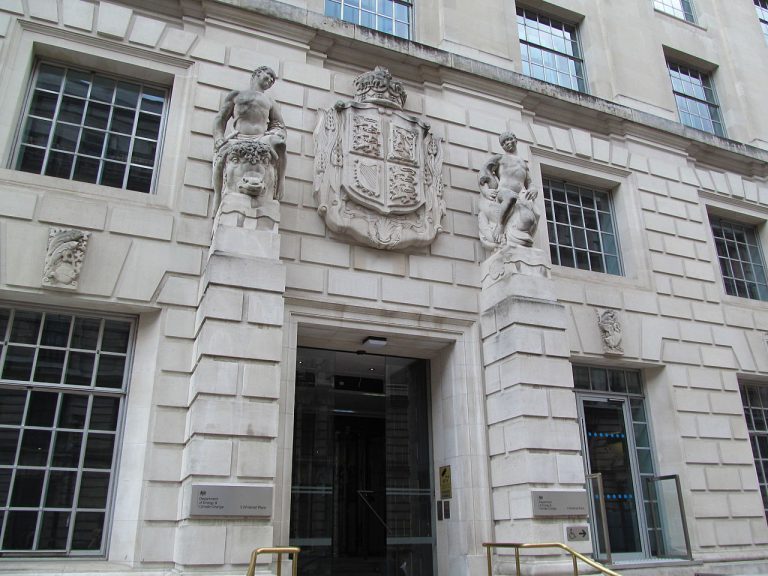Administrating the Government Estate: As Yogi Berra Once Said “It’s Like Deja Vu All Over Again”
DragonGate Non-Executive Chairman, David Werran, warns of the danger of repeating the mistakes of the past in government estates strategy.
The administration of the government estate can be traced back in history to the time of the Anglo Saxons. Throughout this history it has posed civil servants great challenges; with a renewed surge in activity and strategy, the risk today is that government fails to learn from these challenges and repeats the mistakes of the past.
In the twentieth century, boosted by the Second World War, the Ministry of Works became a mighty body with powers of requisition and responsibility for all government building and estates projects. However, in the post-war years and particularly from the 1970s, it became problematical and a by-word for ineptitude and obfuscation.
The main issue was that its workings (and those of its successor organisations, the Property Services Agency then Property Holdings) were often diametrically opposed to the wishes of the departments and agencies it served, frequently with perverse consequences. Decisions it made, ostensibly on behalf of a department, might go badly awry but it would always be the department that faced the Parliamentary Accounts Committee (PAC). For example, maintenance issues were a continual bugbear, with long waits for even the simplest of repairs forcing departments to take their own remedial actions which were, in effect, unlawful.
With little sorrow Property Holdings was abolished in the mid-1990s, replaced by an advisory body within the Cabinet Office allowing departments to pursue a more laissez faire approach with their estates. By the time of the 2004 Lyons Relocation Review, the Office of Government Commerce (OGC) started to take a greater interest in the civil estate. Then with Francis Maude’s 2010 appointment as minister of the Cabinet Office during the Coalition Government, a Government Property Unit (GPU) was formed with greatly increased powers.
Today there are two organisations responsible for the government estate – The Office for Government Property (OGP) for property controls and day-to-day matters, and the Government Property Agency (GPA) that takes a broader view, disposing of and leasing new buildings. So far so good. But with the introduction of a new relocation programme (announced by the Chancellor in his 2020 Budget) involving the dispersal of some 22,000 civil servants from Whitehall, some of the old problems, and other new ones, are beginning to emerge.
From inception, GPA’s big idea was to create large Government Hubs in the UK’s regional capitals – Liverpool, Manchester, Bristol, Cardiff and so forth. The catalyst for these Hubs was HMRC’s massive rationalisation programme that has seen very long leases taken out at various regional localities for up to 500,000 square feet or more of prime office space. It seems clear that these new Hubs will become magnets for the dispersal of the civil service under the new relocation programme.
Such an approach is, I very much fear, a repeat of yesteryear. As an example, the sole reason for the relocation of the Health and Safety Executive in the 1980s to Bootle was that Property Holdings had somehow taken out 25-year leases – with no breaks – on a number of office buildings amounting to a quarter of a million square feet. The HSE merely filled the gap – there was no grand strategy. To add insult to injury, Property Holding organised a fit-out for the buildings that bore no relationship to actual requirements. Although this egregious error was spotted by my team early on, the contractors had to be compensated by HSE, whose Director General then had to appear before the PAC to account for a debacle that was entirely the fault of Property Holdings!
Back to the future. Apart from the changes in office working practices that will inevitably flow from the COVID emergency, the GPA’s grand regional city hubs fly in the face of the Government’s Levelling Up agenda, as epitomised by announcements of relocations to smaller Levelling Up destinations such as Wolverhampton and Darlington. As the relocation programme proceeds, the divergence of and antagonism between Levelling Up and the GPA’s regional hubs policy will only grow.
Ministers should get wise to these facts before it becomes, well, history “repeating itself first as tragedy then as farce” as someone once said!

David Werran is the Non-Executive Director at DragonGate and Co-Chairman of Breaking Barriers Innovations.

























